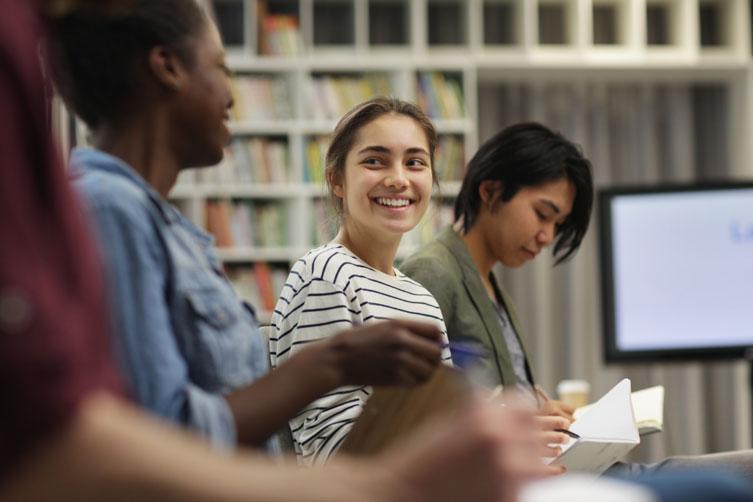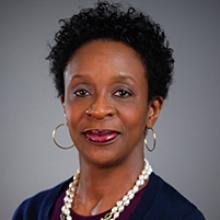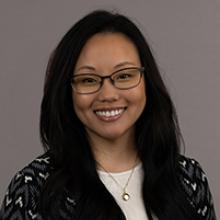Supporting Up-and-Coming Researchers and Practitioners

In the height of summer, in the midst of projects and dissertations, 66 doctoral students from three universities gathered for an intensive workshop to learn about a critical issue in the research field: how cultural and linguistic competence strengthens research and technical assistance. During the four-day workshop, the students engaged with AIR experts, Institute Fellows, and one another about how to design surveys anchored in cultural and linguistic knowledge, skills, and values—and further build the ability to work in culturally proficient ways.
- Education and training
- Mentoring and career advancement
- Networking and internships
This AIR workshop is part of our Pipeline Partnership Program, which seeks to enhance the diversity and cultural competence of the field of behavioral and social sciences by engaging graduate students who reflect the diversity of the communities that the field serves. The Pipeline Partnership Program—in partnership with Georgia State University, Howard University in Washington, D.C., and The University of Texas at San Antonio—aligns with AIR’s mission to generate and use research that contributes to a more equitable society.
Creating the Workshop: Partnership and Collaboration
I enjoyed the cultural and linguistic competence components of this workshop and the great dialogue both in the main room and in the breakouts.
— Student ParticipantTo create the workshop, an AIR research team—Dominique Bradley, Jennie Jiang, Jameela Conway-Turner, and Wehmah Jones—built on a survey methodology course originally developed through an Institute of Education Sciences-funded project. The team worked with AIR’s Regional Educational Laboratory Midwest to integrate principles of cultural and linguistic competence as informed by AIR’s Culturally and Linguistically Appropriate Standards for Projects, Research, and Operations, which guide our work.

Workshop participants came prepared with a research project or study in mind, making the presentations, activities, and discussions relevant to their own work. AIR Institute Fellows Camille Charles and David Hayes-Bautista, both renowned researchers, joined leading AIR researchers Kirsten Firminger and Tamika Cowans in presenting and exploring evidence-based practices with students.
While I was familiar with most of the content areas, the workshop provided information that enhanced my knowledge in every content area of how to effectively develop surveys.
— Student ParticipantThe Pipeline Partnership Program exemplifies how AIR collaborates with partners to build on one another’s assets—in this case, with institutions that serve students who are historically underrepresented in graduate degree programs for researchers in the behavioral and social sciences. “Our partner institutions articulated the need for this course to complement the academic offerings to graduate students,” Karen Francis, vice president and chief diversity, equity, and inclusion officer at AIR, said at the workshop. “AIR was willing and able to leverage our capacity in cultural competence, evidence-based research, and technical assistance to develop this course.”
Looking Ahead
This workshop was just one of the many learning opportunities the Pipeline Partnership Program offers to enhance supports and connections for graduate students from our partner institutions. Additional opportunities include P3 ENGAGE, our year-long mentoring program; similar learning workshops on topics of interest to students; summer internships; and networking events with experts in the field.
The student researchers also have many ideas for what comes next in their learning journeys. Workshop participants generated more than a dozen additional topics they want to know more about. “I would love to do a deep dive into survey methods in relation to hard-to-reach populations, sensitive subjects, and under-researched populations,” one workshop participant said.
Several students suggested rounding out the skills they learned with applied experiences and project management opportunities that involve embedding or partnering with diverse teams. Some students also suggested spending more time practicing, interacting, and reflecting with researchers and their peers. AIR plans to pursue these ideas for future learning experiences.
Walking the Walk on Diversity, Equity, and Inclusion
The Pipeline Partnership Program, which is funded by the AIR Equity Initiative, reflects our commitment to furthering diversity, equity, and inclusion throughout our organization and the world.
“The idea for this program germinated years ago,” said David Myers, AIR president and CEO, as he welcomed students to the first session of the workshop. “AIR’s mission is to generate and use rigorous research that contributes to a better, more equitable world. We believe that the cornerstone of this is having the best human capital talent. Without that, we won’t be able to succeed at our mission.
“When organizations think about diversity, equity, and inclusion,” Myers added, “they often think about their own workforce. We also think about it in terms of how we do our work.”
For more information, please contact Jillian Reynolds.

